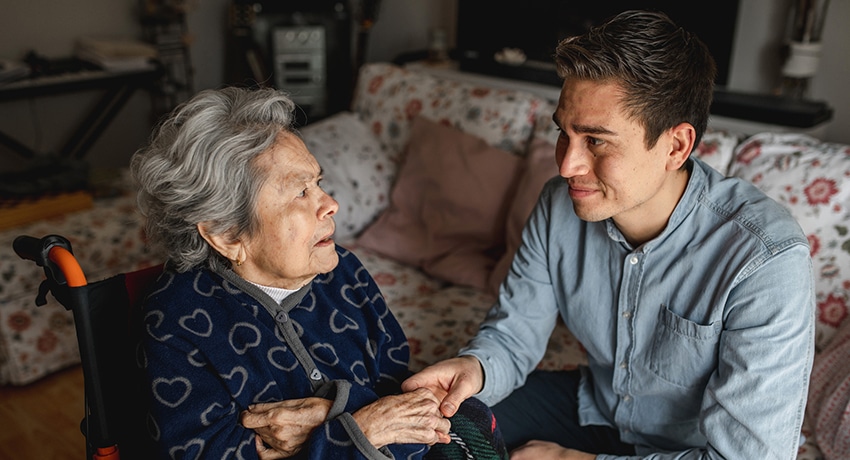
About 1 in 9 Americans age 65 and older have Alzheimer’s disease, according to the Alzheimer’s Association. It is a progressive, deadly brain disorder that is not a normal part of healthy aging — and there is currently no cure for it.
“At this time, all we can do is manage it,” said Faith D. Atai, MD, geriatric specialist with UT Physicians. “The good news is that those who have strong family support and managed medical care are living better and longer than before.”
For Alzheimer’s Disease Awareness Month, the physician teaches people the signs to notice, the screenings to perform, and the steps to take.
Signs and symptoms
“There are too many examples to give, but, generally, it’s a noticeable change in the person,” Atai said. “It can be a change in their memory, routine, or behavior. If something seems odd, it can be an indicator.”
Atai gave some of the most common examples of people with Alzheimer’s:
● They tell a story multiple times to the same person in the same day.
● They can no longer pay their bills or do other cognitive tasks.
● They accuse someone they trust of stealing a personal belonging.
● They are involved in frequent car accidents that are never their fault.
● They no longer practice daily hygiene or personal care.
● They feel uncomfortable or act awkwardly in social situations.
● They say or do things that are uncharacteristic of their personality.
● They begin to withdraw and limit their communication or social activities.
Simple screenings
“In addition to the signs, you can also try some simple screening techniques,” said Atai, associate professor of geriatric and palliative medicine with McGovern Medical School at UTHealth Houston. “Converse with them. Ask them questions to see how much they can recall.”
Atai offered a few suggestions:
● Watch a TV program with them. Afterwards, strike up a conversation and ask them questions about things that happened or were said in the show.
● Eat a meal with them. Then ask them what they enjoyed the most and what they ate earlier that day.
● Ask them questions you already know the answers to. During a call or visit, pretend to forget something and ask them the day of the week, their favorite TV show, or their child’s birthday.
Steps and support
“If you are concerned someone you know may have Alzheimer’s, take them to see their primary care physician. The physician will decide which tests to give,” Atai said.
Be sure to provide the doctor with examples of the person’s behavior.
“You can’t just say, ‘They have a bad memory.’ That’s not enough,” Atai said. “Be sure to provide concrete examples. For instance, ‘She goes to the corner store every day to buy Twinkies, but she doesn’t eat them and her cabinet is completely full of them.’ It helps to be very specific.”
Once a patient is diagnosed with the condition, the physician can begin a treatment plan. However, support and contact are just as important to the patient’s care.
“It’s important to stay in regular touch with your aging friends and relatives. Isolation and loneliness raises their risk of Alzheimer’s,” Atai said. “Visiting them and calling them regularly actually helps their overall health, and it helps you notice any changes.”


